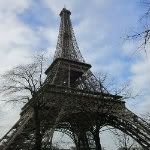Part 4 - "The Stages of Love"
Selfless Love for a Specific Person --by Robert Elias
An essential stage in the evolution of love is being able to love others regardless of their behavior. Probably the closest most of us have come to experiencing such love is towards our children. There are some parents who have totally selfless love for their children. They maintain steady love for "their child" even if he or she does not live up to the parents' expectations, even if he or she rejects and abuses the parents, and even if he or she becomes a dangerous criminal.
This love is not universal nor is it totally unconditional because there is one condition, that the other is "my child" and not someone else's. We might also experience this type of selfless love for a specific person when he or she is "our student" or under "our care or responsibility." This type of love often has to do with the role of protector or feeling responsibility for someone. It enables us to accept all types of behavior from others and continue accepting and loving them with understanding and compassion.
In some cases, we may also feel such love for persons who belong to the same grouping, i.e. nationality, religion or social class. In these cases, we do not gain something tangible from these individuals. We do not require anything from them. Our love is not dependent upon their abiding by a certain type of behavior or even reciprocating our love. Our love is more selfless but still specific and not universal.
Universal Self-less Love--
The next stage is to expand our feelings of unconditional love and acceptance to a wider circle of people and eventually to all beings - including animals, plants and insects. This love, however, is still directed toward form. We are focused on the temporary form being occupied by these beings; thus we feel a sense of sadness when they experience suffering or unhappiness, or if and when we loose them. We perceive their form as reality. We feel love and acceptance for that person, but we still live within the illusion that the form is the reality. We forget that behind that form there is an immortal ever-blissful consciousness, which is just temporarily projecting that form toward the earth plane level.
Universal consciousness is never in pain, never suffers, is never unhappy and can never die. That consciousness is the ultimate reality of the being or beings whom we love. Those who experience this universal selfless love often choose careers or lifestyles that allow them to serve the whole in some way. They may join service groups such as the Peace Corps or other voluntary service organizations. They feel a need to express that love through actions which better the quality of life for those around them, especially for those who are suffering, lonely or unhappy. Their interest expands beyond the limits of themselves and their immediate family.
They begin to realize that all beings are brothers and sisters in one spiritual family of all humanity. As their awareness grows, they perceive even animals, plants and insects as belonging to "their family." They seek to express this love through acts of service and care.
--Be Well
About the author: Robert Elias Najemy's recently released book "The Psychology of Happiness" (ISBN 0-9710116-05) is available at: http://tinyurl.com/956t8yv
Labels: children, dove, family, husband, life, living, love, peace, spouse, unconditional, wife












































0 Comments:
Post a Comment
<< Home